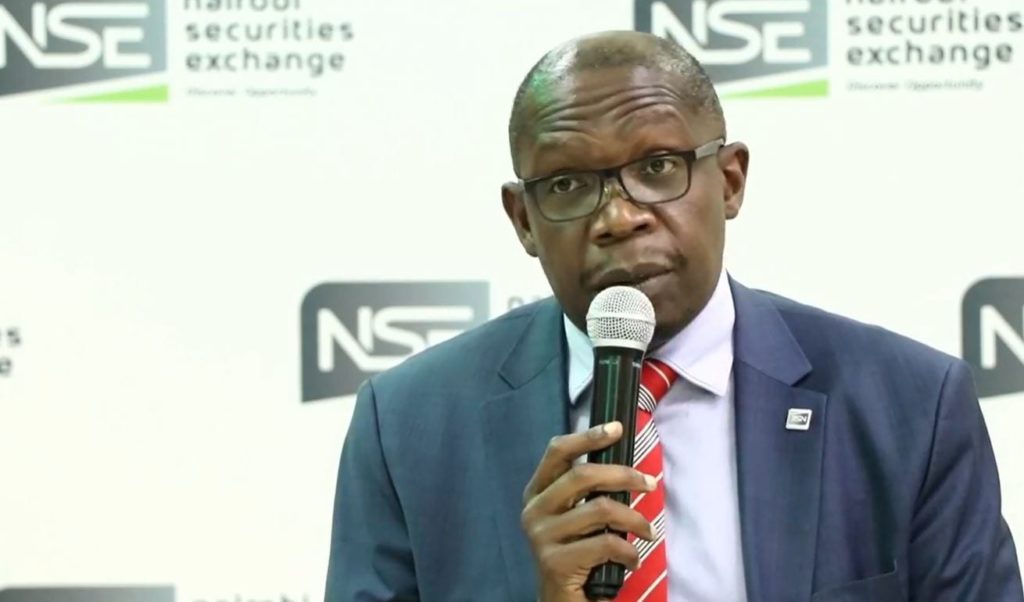NSE PLC Chief Executive Officer Geoffrey Odundo during a past fucntion. PHOTO / FILE Day trading refers to the practice of purchasing and selling a security within a single day/trading session and features commonly on currency and stock exchanges.
The roll out of day trading will be a welcome call to local investors who have previously clamored for the activation of intra-day trading to raise the allure of the Kenyan bourse.
The introduction of day trading is an extension of ongoing initiatives to bolster investor participation in the markets which has also seen the introduction of the unquoted securities platform (USP) earlier this year. On the same note, the NSE is expected to introduce securities lending and borrowing (SLB) before the end of this year.
The Nairobi Securities Exchange (NSE) is expected to initiate day trading this quarter as part of innovation to enhance market activity.
Day trading refers to the practice of purchasing and selling a security within a single day/trading session and features commonly on currency and stock exchanges.
The roll out of day trading will be a welcome call to local investors who have previously clamored for the activation of intra-day trading to raise the allure of the Kenyan bourse.
“Day trading will allow investors to trade on one position, two or three times per day. This will likely double our turnovers,” NSE Chief Executive Officer Geoffrey Odundo told Citizen Digital in an interview on Tuesday.
The introduction of day trading is an extension of ongoing initiatives to bolster investor participation in the markets which has also seen the introduction of the unquoted securities platform (USP) earlier this year.
On the same note, the NSE is expected to introduce securities lending and borrowing (SLB) before the end of this year.
SLB, an initiative allowing market participants to lease out securities on a short term basis is already being piloted by the Central Depository and Settlement Corporation (CDSC).
The successful roll out of the new initiatives is tipped to firm up the rebound of the NSE after a tumultuous 2020 that was primarily marked by the exit of foreign investors.The capitalization of the NSE equities market for instance slumped by an estimated Ksh.200 billion last year to a valuation of just over Ksh.2.3 trillion.So far in 2021, the exchange has seen its returns rebounds to mark double digit growth anchored largely on price gains among large cap companies such as banks and Safaricom.On the […]
